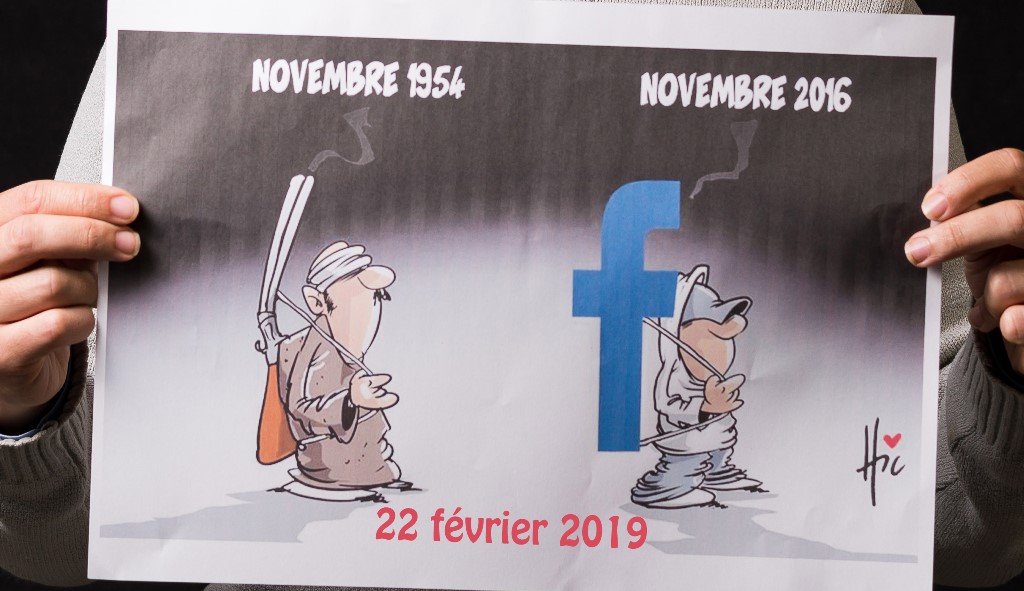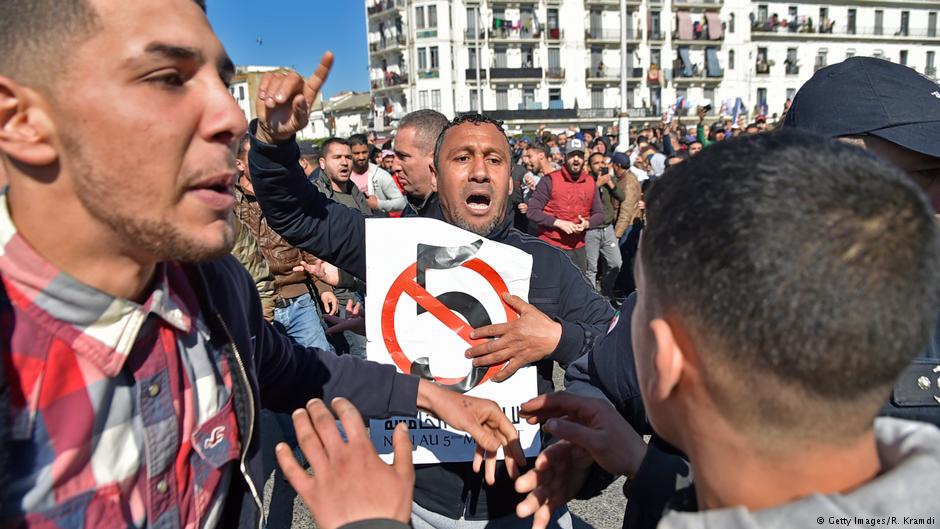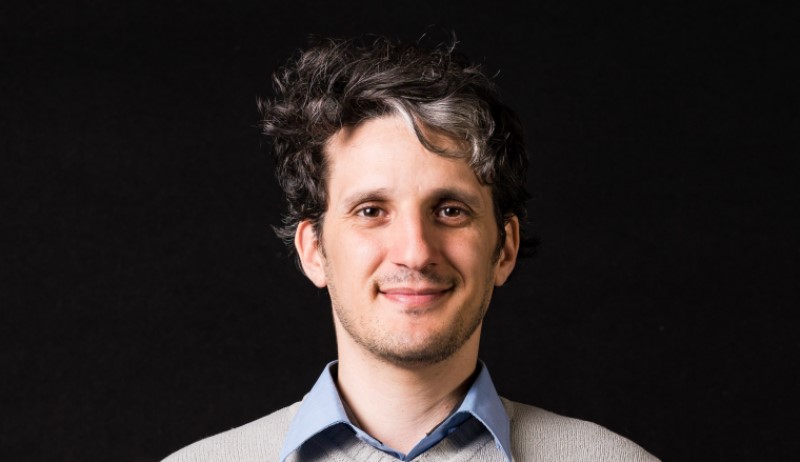Algerians riding a cyberspace wave

There has been an upsurge in online debate among Algerians in recent years focussing on the political situation of the country, the authoritarian nature of the regime and, more specifically, on corruption scandals involving individuals close to the administration. People of all ages – especially in the European diaspora – have begun relaying information, more or less verified, on the ill-gotten gains of Algerian political figures and political discussion forums are booming, particularly among the young.
According to Dalia Ghanem-Yazbeck, a resident scholar at Carnegie Middle East Center, "social media is having a huge impact on the movement in Algeria." She singled out Facebook, which enjoys huge popularity in the North African country, with a 45 percent penetration rate and some 19 million users nationwide, as a major factor.
"Facebook and other platforms such as Twitter are used as vehicles of expression for those millions of Algerians who are discontented and frustrated with the administration. They connect people with one another and are valuable tools when organising local initiatives such as protests and strikes, suggesting slogans, providing guidelines, sharing pictures and videos, not to mention live-streaming."

Yazbeck argued that the ability of protesters to live-stream and share videos via their phones is a game-changer: "Whenever violence, provocation or repression is exerted, the technology is there to shoot and record the scene as it is unfolding, with the potential for the video to go viral within just a few minutes."
Interestingly, in a country where the authorities have no hesitation in blocking Internet access to prevent students from cheating in their Baccalaureate examinations, it should be noted that with the exception of the February 22 march, after which the authorities appeared to slow down the Internet considerably, no significant blockage has been reported. Videos, calls, debates and live footage continue to be relayed freely on all social networks, especially Facebook.
Social media as a haven
Madjid Serrah, an Algerian blogger, explained the advantages of social media: "owing to the ineffectiveness of state institutions and civil society organisations, not to mention the lack of public spaces where Algerians can meet up, the social networks have become a haven for Algerians to express their opinions, defend them and share them with others. In some instances this has led to the emergence of civil groups on social networks that have realised a range of Internet-based projects, such as cleaning campaigns, environmental initiatives, book swaps and fundraising. Social media-guided campaigns – take the one launched on Facebook in 2017 calling for the boycott of the car market in Algeria – are proving very successful.”Serrah concluded that there is no difference between online and real-life activism, arguing that this is clearly evidenced by the number of citizens prosecuted and even imprisoned for a YouTube video or a Facebook post in Algeria. Moreover, he was careful to add a note of caution: "The role of social networks in this movement cannot be altogether positive. Negative aspects include the spreading of rumours and fake news. After all, anyone can create a Facebook page or group and call for a strike or some other action."
Another risk that comes with social networking is ʹlogarithmic closureʹ: those actively involved in a campaign will find that all they have to do is open their Facebook account to be plagued by thousands of pictures and publications and messages pertaining to the movement, which reduces their ability to think or analyse effectively.

A history of online activism
Although it is important to remember that the demonstrations currently rocking Algeria were triggered by anonymous calls on the Internet for a march on 22 February, which snowballed into nationwide demonstrations now in their fifth week, the political impact of social networks in Algeria amounts to much more than these anonymous calls.
According to Athmane Bessalem, lawyer and activist, "Since 2007, social networks have gradually enabled Algerians to become better informed, to find out what is happening around the world, to debate previously taboo subjects such as Islamism, individual liberties, freedom of conscience, feminism… and then to challenge the narratives of the state on these different subjects."
Having actively participated in these recent demonstrations against Bouteflika and his regime, he maintains that "since the first Friday of the major national marches (22 February), everything has been decided on social media during the week for the upcoming Friday demonstration. Slogans are selected, activists make their appearances during the week on social media – and on Friday everything is revealed in the streets. Everyone is on Facebook, Twitter or Whatsapp, including the reporters themselves."
Put simply, a cyberspace of political discourse is taking shape in Algeria. This coincides with the widespread availability of Internet access through 3G and subsequently 4G technologies, the rise of social networks and the large-scale use of smartphones.
Owing to the nature of the beast – social networking is open and accessible to all social strata with divergent cultural, professional and social backgrounds – such discourse is likely to sound chaotic at times, but it might, at its best, prove the very place for political participation involving the country's elite.
Fed by the burgeoning energy of a population on the move, it is potentially this cyberspace discourse that has the capacity to influence Algeriaʹs political trajectory and ultimately challenge the legitimacy of the state.
Nourredine Bessadi
© Qantara.de 2019
Nourredine Bessadi is a researcher and freelance consultant. His areas of interest are human/minority rights, gender and Internet governance.
